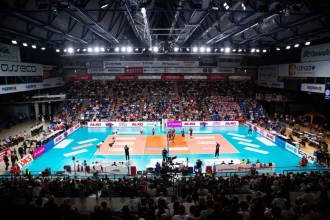Thomas Tuchel recently echoed the sentiment of the legendary Pelé, stating, “Once the great Pelé said: Wembley is the heart, the capital and cathedral of football. I think he was absolutely right.”
This powerful statement not only pays tribute to the iconic Brazilian player but also underscores Tuchel’s deep appreciation for the historical significance of Wembley Stadium in the world of football. Known for hosting some of the most memorable matches and moments in the sport’s history, Wembley stands as a symbol of excellence and a cherished venue for both players and fans alike.
Tuchel’s reference to Wembley as the “heart” of football highlights its central role in uniting fans from all walks of life, fostering a sense of community and passion for the game. As he takes on his new responsibilities, Tuchel recognizes that this historic venue is more than just a stadium; it is a place where dreams are realized, where national pride is showcased, and where the rich heritage of English football is celebrated. His connection to Wembley emphasizes the importance of playing on such a prestigious stage, as it can serve as a powerful motivator for the players representing the England team.
Moreover, Tuchel’s acknowledgment of Wembley as the “capital and cathedral” of football reflects his understanding of the sport’s cultural and emotional significance in England. This perspective is essential as he prepares to lead the national team into crucial matches, aiming to harness the spirit of the venue to inspire his players.
By embracing the legacy of Wembley, Tuchel aims to create an environment where the players feel the weight of tradition while also igniting a desire to forge new paths in the annals of football history. His words serve as a reminder of the enduring connection between the players, the fans, and the sacred ground that is Wembley Stadium.













